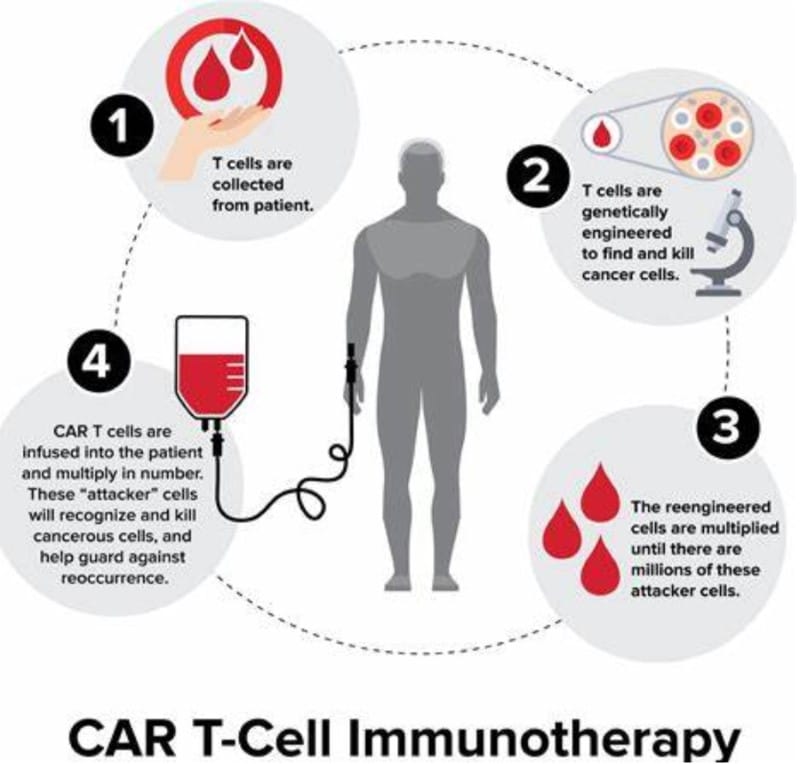
Cancer remains one of the most pressing health challenges worldwide. Despite decades of research and advancements in medical technology, this disease continues to claim millions of lives each year. However, the tide may be turning. With revolutionary breakthroughs like CAR T-cell therapy and global efforts from organizations like DKMS, we are inching closer to defeating cancer. But how soon can we achieve victory over cancer?
The Global Cancer Crisis: A Growing Threat
Cancer is no longer just a disease of the developed world; it has spread across continents, with certain regions becoming hotspots for various types of cancer. According to recent statistics, approximately 19.3 million new cancer cases were reported worldwide in 2020, and the numbers are expected to soar in the coming decades. Asia, with its large population, is now at the forefront of this growing epidemic, accounting for nearly half of all new cancer cases. The World Health Organization (WHO) predicts that by 2040, global cancer cases could reach 30 million annually, with developing nations bearing the brunt due to a lack of early detection programs and healthcare infrastructure.
One region that stands out is South Asia, including countries like India, Bangladesh, and Pakistan, which have seen a dramatic rise in cancer cases. Environmental factors, tobacco use, and dietary changes are key contributors. Meanwhile, in the Western world, breast, lung, and prostate cancers continue to dominate, with an alarming increase in lung cancer cases, even among non-smokers.
Global Cancer Statistics: Incidence, Mortality, and Survival Rates by Country
| Country | Cancer Incidence (per 100,000 people) | Cancer Mortality (per 100,000 people) | 5-Year Survival Rate | Analysis |
| United States | 352 | 120 | 67% | Better: Advanced treatments, early detection |
| Australia | 468 | 155 | 70% | Better: Strong healthcare system, screening |
| Japan | 285 | 80 | 60% | Better: Effective healthcare, early diagnosis |
| United Kingdom | 375 | 165 | 50% | Struggling: Improvements needed in early detection and access to care |
| China | 204 | 170 | 40% | Struggling: High mortality, limited access to care |
| India | 135 | 90 | 30% | Struggling: Late-stage diagnosis, resource constraints |
| Brazil | 255 | 115 | 55% | Moderate: Mixed healthcare quality |
| Germany | 310 | 125 | 65% | Better: Well-developed cancer care |
| Russia | 250 | 180 | 40% | Struggling: High mortality, access issues |
| South Africa | 150 | 100 | 35% | Struggling: Limited healthcare resources |
Here are some reliable sources for the cancer incidence, mortality, and survival rates provided:
- Global Cancer Observatory (GCO) – This is a project by the World Health Organization’s International Agency for Research on Cancer (IARC), which provides global cancer statistics:
- Website: https://gco.iarc.fr/
- World Cancer Research Fund International – Offers detailed cancer statistics by country, including incidence and mortality:
- American Cancer Society – Provides reports and insights on global cancer statistics and survival rates:
- Global Burden of Disease (GBD) Study – Provides an annual summary of global health data, including cancer statistics:
Preventing Cancer: A Global Effort
Preventing cancer isn’t solely about treatment but also about lifestyle changes and proactive health measures. Recent studies have shown that up to 40% of cancer cases can be prevented through actions like quitting smoking, reducing alcohol consumption, and adopting a healthier diet. Regular screening and early detection can also significantly reduce mortality rates. The HPV vaccine, for instance, has proven instrumental in reducing cervical cancer cases worldwide.
Governments and healthcare organizations are now pushing for increased awareness and access to these preventive measures. Educational campaigns, particularly in developing countries, are becoming crucial to prevent cancer from spiraling out of control. But the question remains: even if prevention can halt some cancers, what about those that are already wreaking havoc? This is where groundbreaking therapies come into play.
NexCAR19 CAR T-Cell Therapy: A Revolutionary Treatment
Among the most exciting developments in cancer treatment is CAR T-cell therapy, a type of immunotherapy that has shown promising results in treating certain types of cancer, especially blood cancers like leukemia and lymphoma. CAR T-cell therapy works by modifying a patient’s T-cells, a type of white blood cell, to attack cancer cells. By enhancing the body’s immune response, this treatment targets cancer cells more precisely than traditional methods like chemotherapy and radiation.
One of the latest innovations is the NexCAR19 CAR T-cell therapy. This therapy is currently in clinical trials, combining CAR T-cell therapy with stem cells to offer even greater potential. The therapy focuses on using genetically modified T-cells that can not only attack cancer cells but also endure longer within the body, reducing the likelihood of relapse. Stem cells are introduced to provide sustained regeneration of immune cells, improving the longevity and efficacy of the treatment. Early results from clinical trials show promise, with significant remission rates in patients who previously had limited options.
The use of stem cells alongside CAR T-cell therapy is proving to be a game-changer. It offers a durable response, meaning patients could experience longer periods without cancer returning. This breakthrough has offered new hope for patients, especially those with refractory blood cancers—cancers that don’t respond well to standard treatments.
DKMS: Deleting Blood Cancer One Donor at a Time
DKMS (We Delete Blood Cancer) has developed a highly systematic and efficient approach to stem cell donation, enabling it to provide lifesaving transplants to patients across the globe. Their process begins with donor recruitment, extends to free screening, and culminates in a well-organized global database that matches patients with potential donors in record time.
1. Data Collection and Donor Recruitment
DKMS operates a robust global donor recruitment program, encouraging individuals to register as potential stem cell donors. Registration is quick and easy, often starting with a simple cheek swab kit that is mailed to the donor. This kit collects saliva samples, which are then analyzed to identify Human Leukocyte Antigen (HLA) typing, a critical marker determining whether a donor and patient are compatible.
HLA typing is vital in stem cell transplants as it reduces the risk of the body rejecting the donated cells. DKMS provides HLA typing free of charge, lowering the barrier for individuals to participate in the fight against blood cancer. This testing is crucial because a suitable match is typically found outside the patient’s immediate family, making a large, diverse donor pool essential.
2. Free Screening and Maintaining the Database
Once the screening results are obtained, DKMS enters the donor’s information into its global database, which is meticulously maintained to ensure accurate and up-to-date records. The database contains millions of potential donors, which are categorized based on their HLA type, age, location, and overall health. This enables DKMS to respond swiftly when a patient, anywhere in the world, needs a stem cell transplant.
The organization follows a systematic approach to data management, ensuring that donor profiles are regularly updated. This includes periodic health assessments and reconfirmation of a donor’s availability and willingness to donate. With over 11 million registered donors globally, DKMS has created one of the largest and most reliable stem cell databases in the world.
3. Swift Response to Global Needs
When a patient needs a transplant, time is of the essence. DKMS’s database allows them to swiftly identify potential matches and contact donors. The organization has established a streamlined process to respond to emergency requests from any part of the world. Once a match is found, DKMS handles all aspects of coordinating the donation process, including medical testing, logistics, and transportation of stem cells.
Thanks to their global network and advanced database systems, DKMS can facilitate donations across borders, often within a matter of days. The organization works closely with hospitals, clinics, and healthcare providers to ensure that the stem cells are harvested and delivered to the patient promptly, giving them the best chance at survival.
4. Comprehensive Support for Donors and Patients
DKMS also provides extensive support for both donors and patients throughout the entire process. For donors, DKMS offers counseling, medical follow-ups, and logistical assistance to ensure a smooth donation experience. The organization helps patients navigate the complexities of stem cell transplants, offering resources and support during their treatment journey.
By combining a rigorous screening process, a well-maintained global database, and the ability to respond quickly, DKMS has saved thousands of lives. Their commitment to efficiency, data accuracy, and swift response makes them a global leader in the fight to delete blood cancer.
The Future of Cancer Treatment
While there is no single cure for cancer yet, the strides we are making suggest that victory over cancer may not be as far off as it once seemed. The combination of advanced therapies like NexCAR19 CAR T-cell therapy and the tireless efforts of organizations like DKMS are creating new hope for millions of people around the world.
However, the journey isn’t over. Cancer remains a complex disease, with over 200 types that require different approaches to treatment and prevention. But the fast progress in medical research, driven by innovative therapies, immunology, and genetics, makes us believe that we are close to a major breakthrough.
Conclusion: Is Victory Over Cancer Possible?
While a complete victory over cancer is still a work in progress, there is no denying the momentum. With advances in early detection, and prevention, new therapies like NexCAR19 CAR T-cell therapy, and global efforts from organizations like DKMS, we are getting closer. Victory may not be here today, but it is within reach. It is up to the medical community, governments, and individuals to keep pushing forward until cancer becomes a relic of the past.
In the words of those fighting the battle: We are not there yet, but we are much closer than we have ever been.
For more Health Related Blogs, Read: Diabetes, Negative Thoughts, Teenage Depression
Enjoyed this article?
If you find the blogs helpful, you can support Chatterlane with a small contribution. Even a cup of coffee helps me continue creating useful, well-researched content.


Comments
6 responses to “Victory Over Cancer: Are We Close to Winning?”
Nice post
What i don’t understood is in truth how you’re now not actually much more smartly-preferred than you may be right now. You’re so intelligent. You already know therefore considerably on the subject of this subject, made me in my opinion believe it from numerous varied angles. Its like men and women don’t seem to be involved except it?¦s something to do with Girl gaga! Your personal stuffs excellent. All the time deal with it up!
[…] For readers, her story offers a valuable lesson: healing is not just about curing the body but also nurturing the mind and spirit. With curiosity, caution, and courage, patients can explore holistic methods under professional guidance while benefiting from the advancements in modern medicine.For more insightful articles and engaging content, check out this related post, Victory Over Cancer: Are We Close to Winning? […]
[…] For more Health Related Blogs, Read our Trending Blogs: 10 Urgent Diabetes Symptoms, Teenage Depression, Victory Over Cancer. […]
[…] their doctor tells them to.Related Reads You Might Enjoy:Depression Symptoms, Causes and Treatments:Victory Over Cancer: Are We Close to Winning?Diabetes: It’s Types, Causes, Symptoms, and Effective TreatmentsPractical ways to deal with […]
[…] Breakthroughs like Enteromix and CAR T-cell therapy are changing the way we fight cancer. Learn more about CAR T-cell innovations in our blog Victory Over Cancer: Are We Close to Winning? […]